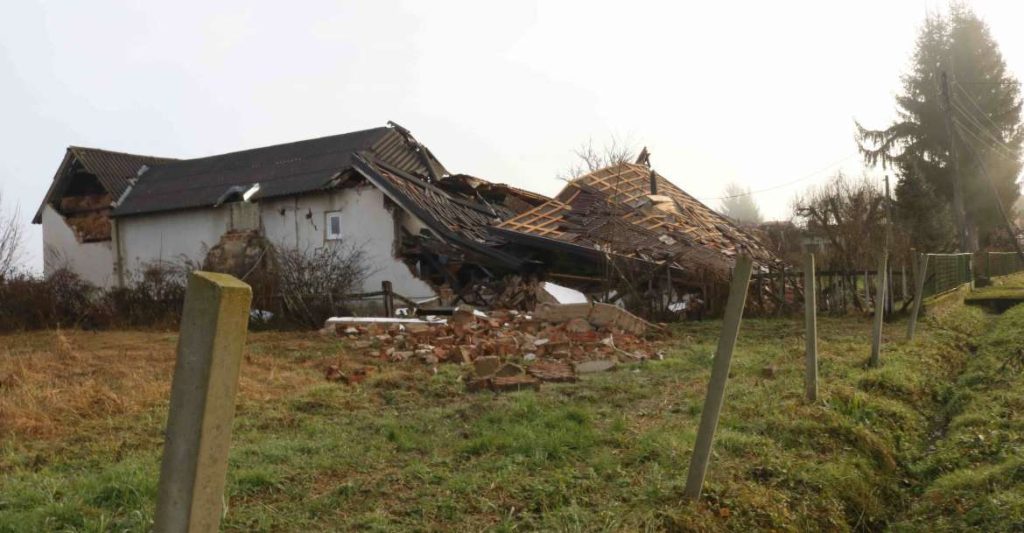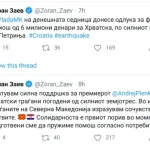As Novac za sutra writes, In 2019, Croatian earthquake insurance accounted for only one percent of the gross written premium of all non-life insurance in Croatia, which indicates a very low level of coverage of this risk. However, the latest earthquake with its epicentre in Sisak-Moslavina County and the previous one in Zagreb in March 2020 have already contributed to a general increase in interest in insuring properties against this type of risk.
It is important to know that Croatian earthquake insurance is contracted as an ”additional risk” to basic property insurance and it is necessary to pay close attention to this when concluding any sort of contract on it, whether the contract is on the insurance of housing, household items, cars or other types of property. Deadlines for reporting claims are primarily instructive and don’t affect insurance rights.
For all those who have contracted property insurance against earthquake risk, the Croatian Insurance Bureau (HUO) announced that insurance companies are ready to report damage caused by the earthquake and that the deadlines in terms of insurance for reporting damage, for example three days, are only instructive and that due to non-compliance with that deadline, insurance rights cannot be lost.
All those who have a contract with an additional earthquake risk involved in it should report the damage by contacting their insurance company by info phone, mail or e-mail. If possible, it is good to follow the instructions published by insurance companies on the website, and it is necessary to study the concluded contract and insurance conditions beforehand. For all those who will now consider contracting Croatian earthquake insurance, it is important to draw some attention to several points:
Croatian earthquake insurance is contracted as an additional risk to the basic property insurance. When insuring residential buildings, Croatian earthquake insurance can be contracted as an additional risk for damage to buildings: residential and business parts, common areas of the building and other premises, and that which is taken care of by co-owners or building managers. In insurance, it is also possible to exclude coverage due to earthquakes of a lower intensity or degree, which is specified in detail in the insurance conditions or on the insurance policy. Therefore, it is necessary to carefully read the insurance conditions that the insurer is obliged to give you before concluding the insurance contract.
In the case of franchising (participation in the damage in a certain percentage or even in the case of the absolute amount), the insurance contract may be cheaper or the premium may be lower. In that case, the policyholder must be aware that the amount of compensation in the event of an insured event will be reduced by the agreed amount of the deductible. Compulsory motor third party liability insurance doesn’t cover earthquake damage. Kasko motor insurance may or may not cover earthquake damage. Therefore, before concluding a contract, it’s necessary, once again, to very carefully read the insurance conditions that the insurer is obliged to hand over to you before concluding the contract.
Property insurance in Croatia is far below the European average in general…
According to the HUO, property insurance premiums in Croatia amounted to 48 euros per capita back in 2019, which is almost four times less than the EU average of 174 euros. Despite this data, which shows low coverage by property insurance, insurers paid 237.5 million kuna in compensation for the damage from the Zagreb earthquake which struck last March by the end of November 2020, and according to HUO estimates, another 150 million kuna is yet to be paid.
The Croatian Financial Services Supervisory Agency (Hanfa) doesn’t expect that the damage caused by the 2020 earthquakes could jeopardise the liquidity and solvency of insurance companies because they’re well capitalised and adequately manage earthquake risks. The stability of their business is also contributed to by retained earnings, which last year, in accordance with the prescribed Hanfa measure, were not paid out to shareholders. Therefore, Hanfa expects that insurance companies will continue to properly fulfill their obligations under insurance contracts and, as before, justify the trust of their policyholders.
How to exercise the right to an insurance pay out
When it comes to covering earthquake damage to property, make sure that earthquakes are included in your insurance policy and that this is stated in the insurance conditions that are an integral part of the insurance contract (policy). If you have contracted property insurance that covers earthquake damage, report the damage to the insurance company with which you’ve taken out a policy, in accordance with the relevant insurance conditions.
The insurer is obliged to pay out the insurance within 14 days to a maximum of 30 days from the notification of the occurrence of the insured event or to inform you that the claim is unfounded. If the amount of the insurer’s liability can’t be determined within the specified deadlines, and the claim is founded, the insurer must pay the undisputed part of its liability as an advance within the specified deadlines, and otherwise default interest. If the party files a complaint after assessing the damage, the insurance company is, in accordance with legal provisions, obliged to respond within 15 days of receiving the complaint.
When paying out for damages, there is a difference when it comes to whether you have a contracted policy with the franchise (participation in the damage in a certain percentage or absolute amount) or not, because if you have a contracted deductible, the insurance premium is lower, but at the same time the amount of compensation is reduced.
Although Hanfa, as the market regulator, is not competent to make a decision on the merits and amount of the claim, in case of disagreements with insurance companies there is a possibility to submit a complaint to Hanfa at the e-mail address [email protected] or by phone at 01 6173 493. In addition, in case of disagreement with an insurance company, in addition to court proceedings, clients have at their disposal a conciliation procedure that can be initiated before the Conciliation Centre at the Croatian Chamber of Commerce or at the Croatian Insurance Bureau.
More detailed provisions on initiating the conciliation procedure can be found on the website of the Croatian Chamber of Commerce (www.hgk.hr), ie the Croatian Insurance Bureau (www.huo.hr).
For more on the Petrinja earthquake, follow our dedicated section.











